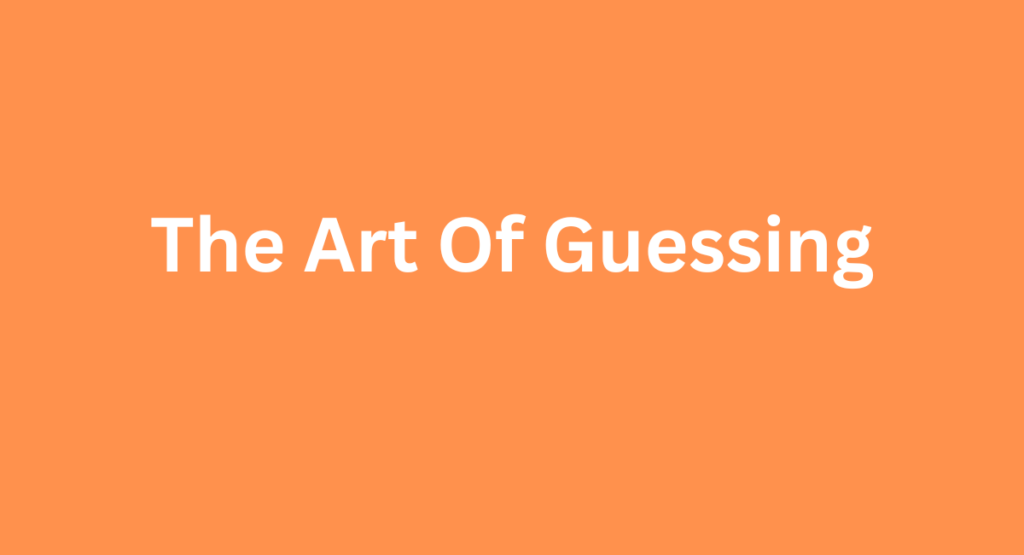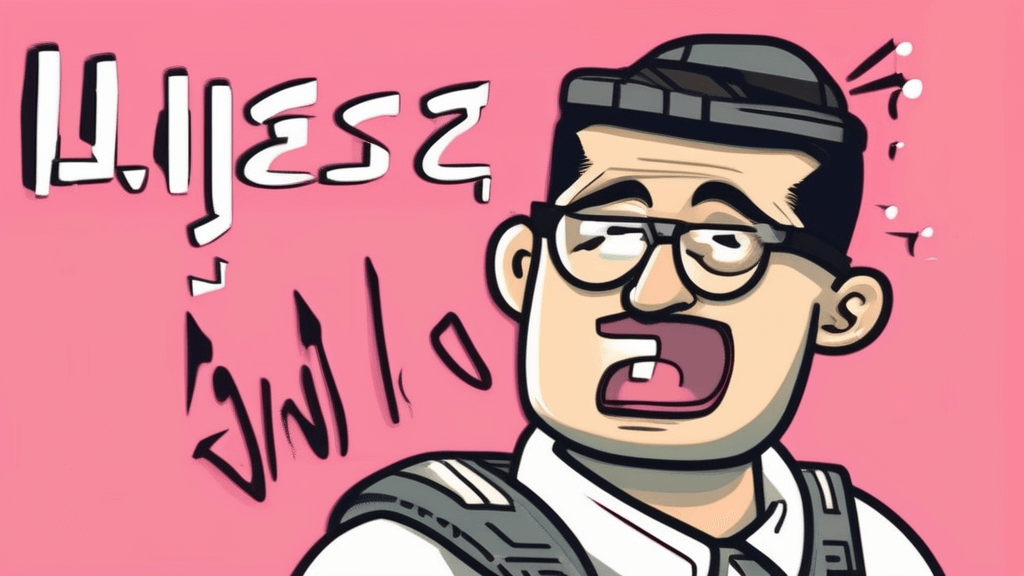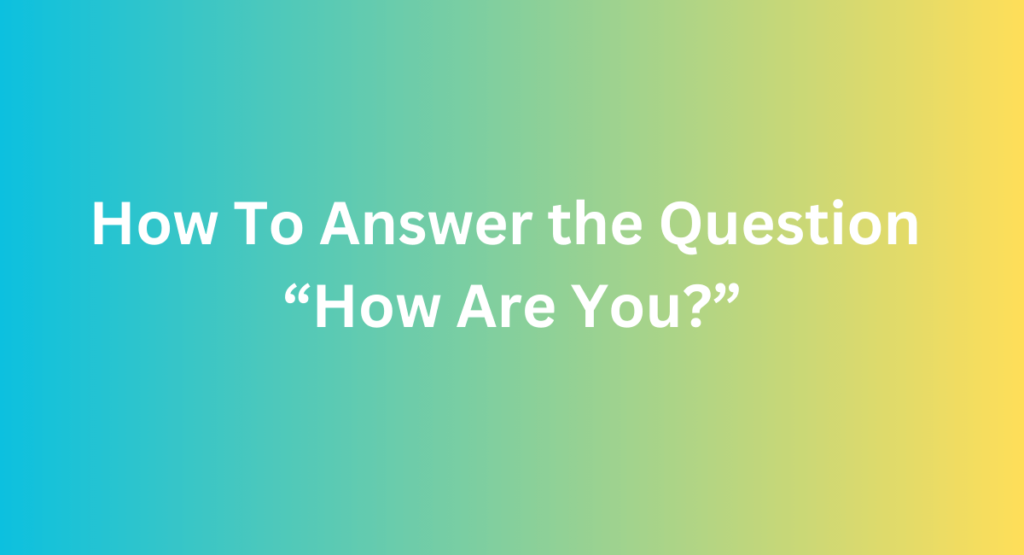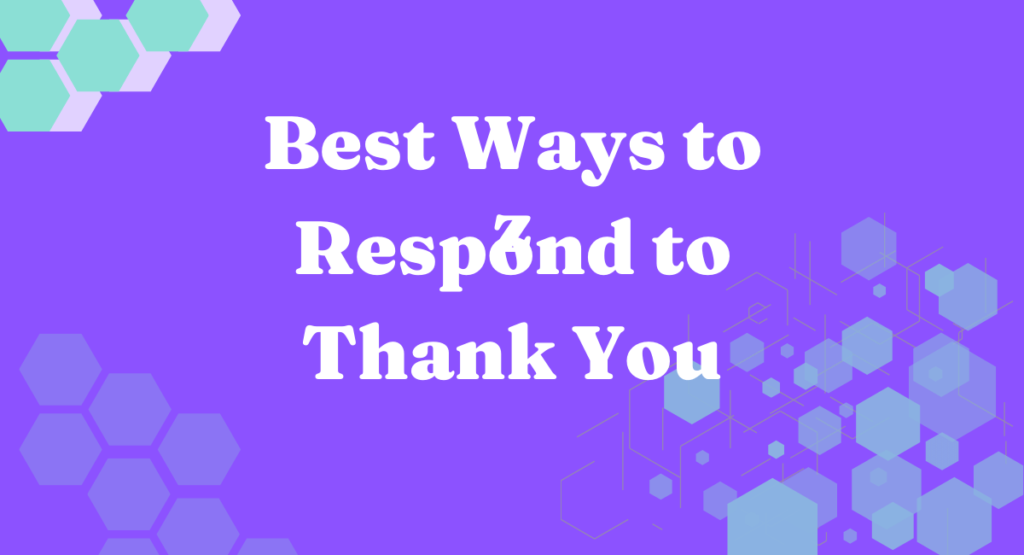When someone says “Guess what,” simply respond with “What?” This is the most common and straightforward reply.
If you’re looking for a fun and engaging response to “Guess what,” there are several clever and entertaining ways to engage in the conversation. While “What? ” Is a classic and polite response, you can also consider more humorous or sarcastic answers based on the context and your relationship with the person.
Different Ways To Respond
explores the various facets of responding and offers insights into developing a versatile set of skills for different situations.
Some General Answer
1. “I’m intrigued, go ahead, hit me with it!”
2. “Oh, the suspense! Give me a clue?”
3. “I’m not great at guessing, but I’m ready for the challenge!”
4. “I have no idea, but I’m excited to find out!”
5. “I’m on the edge of my seat – what’s the scoop?”
6. “Don’t keep me in suspense! What am I guessing?”
7. “I’m terrible at this, but I’ll give it a shot. What’s your clue?”
8. “Is it something I should be worried about, or is it good news?”
9. “I’m ready for a game of guessing. Lay it on me!”
10. “Hit me with your best clue! I’m ready to guess.”
11. “Alright, I’m ready to take a wild guess. What’s the challenge?”
12. “Is it something obvious, or are you testing my deduction skills?”
13. “I love a good guessing game. What’s the mystery this time?”
14. “I’m terrible at guessing, but I’m excited to try! What’s the question?”
15. “This sounds like fun! Give me a hint to get started.”
16. “I’m not great with riddles, but I’ll do my best. What’s the challenge?”
17. “I’m ready for the guessing game – lay it on me!”
18. “You’ve got my attention. What am I supposed to guess?”
19. “I’m curious! What should I be trying to figure out?”
20. “I’m up for the challenge! What’s the mystery?”
21. “I’m not the best guesser, but I’ll give it a shot. What’s the question?”
22. “You’ve piqued my interest! What am I trying to guess?”
23. “Alright, I’m ready to flex my guessing muscles. What’s the challenge?”
24. “I’m terrible at guessing, but I’m eager to try. What’s the mystery?”
25. “I love a good guessing game. What do you have in store for me?”
26. “Is this a tricky one, or am I overthinking it?”
27. “Give me a clue or two – I’m ready to guess!”
28. “I’m not the best at guessing, but I’m up for the challenge. What’s the question?”
29. “I’m excited to play along! What am I guessing?”
30. “I’m all ears! What should I be trying to guess?”
Casual Response
Here are 10 casual responses for the “Guess What How to Answer” scenario:
1. “Oh, I love a good mystery! Give me a clue!”
2. “No idea, but I’m ready for the big reveal!”
3. “Alright, I’m game! Hit me with it!”
4. “I’m terrible at guessing, but I’ll give it a shot. What’s the scoop?”
5. “I’m all ears! Lay it on me, and let’s see if I can crack the code.”
6. “I’m intrigued! Spill the beans; I can’t wait to find out.”
7. “You’ve got my attention! What’s the scoop? I’m ready to guess!”
8. “I’m not the best at guessing, but I’m up for the challenge. What’s up?”
9. “Consider my curiosity piqued! What do I need to guess?”
10. “I’m in suspense! Tell me, what’s the mystery I need to unravel?”
Polite Response
Here are 10 Polite Responses to “Guess What How to Answer”
1. “I’m not sure, but I’m excited to find out! What’s the news?”
2. “I’m not the best at guessing, but I’m all ears! What’s the surprise?”
3. “I’m not great with mysteries, but I’d love to hear what you have to share!”
4. “I’m not one to guess easily, so please do tell! What’s the big reveal?”
5. “I’m not in the guessing game today, but I’m curious—what’s the scoop?”
6. “I’m not equipped with psychic abilities, so why don’t you enlighten me?”
7. “I’m not skilled at guessing, but I’m ready for the revelation. What is it?”
8. “I’m not a mind reader, but I’m eager to hear what you have to say!”
9. “I’m not the best at guessing games, but I’m open to surprises. What’s up?”
10. “I’m not clairvoyant, so I’ll need a little help here. What’s the news?”
Friendly Response
Here are 10 friendly responses to “Guess what”:
1. “I’m terrible at guessing, but I’m excited to hear what it is!”
2. “You’ve got my attention! What’s the surprise?”
3. “I love a good guessing game! Lay it on me—what’s up?”
4. “Oh, I’m intrigued! What’s the big news or surprise?”
5. “I’m not great at guessing, but I’m ready for the reveal!”
6. “You’ve sparked my curiosity! What’s the exciting update?”
7. “I’m so bad at guessing, but I’m dying to know—what is it?”
8. “You’ve got me wondering! What’s the exciting thing to guess?”
9. “I’m all ears! What’s the secret you want me to guess?”
10. “I’m not the best guesser, but spill the beans! What’s happening?”
Whether it’s a flirty exchange or a friendly banter, having a repertoire of creative and lighthearted responses can make interactions more enjoyable and memorable. It’s important to gauge the situation and tailor your response accordingly. So, don’t be afraid to add a touch of humor or playfulness to your answer when someone says “Guess what? “
The Art Of Guessing

Developing intuition is a crucial component of the art of guessing. Intuition allows us to make educated guesses based on our past experiences and the subconscious patterns we have observed. It is like a sixth sense that guides us toward the most probable answer. Many successful people attribute their achievements to their well-developed intuition. So, how do we enhance our intuition?
- Pay attention to your gut feelings and instincts. Trust your initial hunches, as they often have a basis in truth.
- Practice mindfulness and be present in the moment. This helps us to observe patterns and connections that we might otherwise miss.
- Engage in activities that stimulate the brain, such as puzzles and riddles. These exercises sharpen our cognitive abilities, allowing us to form more accurate guesses.
Recognizing patterns is another essential skill in the art of guessing. Our brains are wired to find patterns in everything, which aids in making sense of the world around us. By recognizing patterns, we can make more informed guesses. Here are a few ways to improve our pattern recognition skills:
- Expose yourself to different experiences and information. The more diverse the inputs, the better equipped we become at identifying patterns.
- Read books and engage in activities that challenge your thinking. This expands your mental repertoire and exposes you to new patterns.
- Pay attention to details. Often, patterns emerge in the subtle nuances and recurring elements.
By developing intuition and recognizing patterns, we can enhance our ability to make accurate guesses. The art of guessing is not just about luck; it requires practice, observation, and an open mind. So, embrace the power of guessing and let it guide you towards new possibilities.
Strategies For Effective Guessing
Being able to effectively guess the answer to a question can be a valuable skill, whether in a game, a test, or daily problem-solving situations. There are several strategies for effective guessing that can help you make educated guesses and improve your chances of getting the correct answer.
Elimination Method
One of the most effective guessing strategies is the elimination method. By eliminating the incorrect choices, you can increase the probability of selecting the correct answer. This method is particularly useful in multiple-choice questions where some options can be immediately ruled out, allowing you to focus on the remaining possibilities.
Educated Guessing
When you don’t know the exact answer to a question, but have some knowledge or context related to it, making an educated guess can be a useful strategy. Using logical reasoning and applying relevant information you already know can significantly increase the likelihood of your guess being correct. This method can be particularly helpful in situations where you can eliminate some choices but are still unsure which option is the best guess.
Contextual Clues
Examining contextual clues can also aid in making effective guesses. Pay close attention to the wording of the question or look for hints within the surrounding information that might lead you to the right answer. Contextual clues can provide valuable insights that guide you toward a well-informed guess, ultimately enhancing your chances of guessing correctly.
Improving Guessing Skills
Are you tired of always feeling unsure when someone asks you to guess something? Improving your guessing skills can make these situations a lot more enjoyable. By practicing, enhancing your reading comprehension, and staying informed, you can become a confident guesser. Let’s explore some valuable tips to help you enhance your guessing abilities.
Practicing With Quizzes
Engaging in quizzes can be an effective way to improve your guessing skills. By participating in various quizzes, you can train your brain to make educated guesses. The more you practice, the more your ability to make logical and accurate guesses will improve. Additionally, quizzes can help you become familiar with different types of questions and scenarios, enabling you to hone your guessing expertise.
Reading Comprehension
Improving your reading comprehension can significantly enhance your guessing abilities. When you have a better understanding of written content, you can more accurately infer and predict outcomes. Strong comprehension skills allow you to grasp subtle hints and cues, which can assist you in making more informed and precise guesses in various situations.
Staying Informed
Staying informed about a wide range of topics can sharpen your ability to make accurate guesses. By staying updated on current events, trends, and relevant information, you can better predict possible outcomes and make more calculated guesses. A well-informed individual is better equipped to analyze situations and make reasoned guesses, ultimately improving their overall guessing skills.
When To Guess Or Not To Guess
Guessing can be a tricky aspect of test-taking. On one hand, taking a guess can potentially earn you points if you happen to get the answer right. On the other hand, guessing incorrectly can result in losing points, especially if there are penalties for incorrect answers. So, when should you take the risk and guess, and when is it better to leave a question unanswered? Let’s explore some strategies for understanding when to guess and when not to guess.
Understanding Test Scoring
Before deciding whether to guess or not, it’s important to understand how the test is scored. Some tests may have a penalty for incorrect answers, while others may not penalize you for guessing. Take the time to familiarize yourself with the test’s scoring system, as this will guide your decision.
Balancing Risk And Reward
When deciding to guess or not, you need to find a balance between the risk and reward. If there is no penalty for incorrect answers, taking an educated guess can be beneficial. You may have some knowledge of the topic or can eliminate some wrong answers, increasing your chances of getting it right. However, if there is a penalty for incorrect answers, you may need to weigh the potential points gained against the points lost. In these cases, it may be wise to skip questions you’re unsure about.
Here are some key points to consider when balancing risk and reward:
| Penalty for Incorrect Answers | Strategy |
| No Penalty | Take an educated guess or make an educated elimination |
| Partial Penalty | Weigh the potential points gained against the points lost. Make an educated guess if you have some knowledge of the topic |
| Full Penalty | Skip the question unless you can eliminate some incorrect options |
By considering the penalty for incorrect answers, you can make a more informed decision on when to guess and when to abstain.
Overcoming Guessing Anxiety
Guessing anxiety can be a common issue that many people face when presented with a guessing question or situation. It’s that feeling of uncertainty and fear of making the wrong guess that can make us second-guess ourselves and feel anxious. However, with the right mental preparation and strategies, you can overcome guessing anxiety and respond confidently. In this article, we will explore two key aspects of overcoming guessing anxiety: mental preparation and managing time pressure.
Mental Preparation
Effective mental preparation plays a crucial role in overcoming guessing anxiety. By adopting the right mindset, you can boost your confidence and improve your ability to handle guessing questions or situations. Here are some tips to help you mentally prepare:
- Stay calm and focused: Take deep breaths and remind yourself that it’s okay to not have all the answers. The goal is not to be perfect but to give it your best shot.
- Positive self-talk: Replace negative thoughts with positive affirmations. Encourage yourself by saying things like, “I am capable of making informed guesses” or “I trust my instincts.”
- Visualize success: Imagine yourself confidently making a guess and receiving a positive response. Visualizing success can help build your confidence and reduce anxiety.
Managing Time Pressure
Time pressure can intensify guessing anxiety, making it harder to think clearly and come up with a confident answer. However, there are strategies you can use to manage time pressure effectively:
| Strategies | Example |
|---|---|
| Prioritize information | Identify the most important clues or factors that can help you make an educated guess. |
| Eliminate unlikely options | Quickly rule out the options that are highly unlikely to be correct. |
| Make an educated guess | Based on the available information, make a logical guess that seems reasonable. |
By following these strategies, you can effectively manage time pressure and improve your chances of making a confident guess.
Overcoming guessing anxiety is a process that requires practice and patience. By implementing these mental preparation techniques and time management strategies, you can gradually build your confidence in guessing situations and overcome anxiety. Remember, it’s not about being perfect, but about giving it your best shot and trusting your instincts. So the next time someone says “Guess what?” embrace the challenge with confidence!
Frequently Asked Questions On Guess What How To Answer
What To Say When Someone Says Or What?
When someone says “or what? “, you can respond with “try me” or “dare you” to show confidence. Avoid responding with threats or aggression.
How Do You Answer A What’s Good Question?
To answer a “What’s good? ” Question, simply respond with a positive statement about something good in your life or in general. For example, you can say, “Everything’s good! Just enjoying the beautiful weather today. ” Keep your response short and upbeat.
How Do You Do Reply Answers?
When someone says “How do you do? ” It’s a form of greeting. You can reply with “Fine, thanks. And you? ” Or “I’m great, how about you? “
How Do You Write Guess What?
To write “guess what”, use it as an imperative statement and end with a period or exclamation mark for emotional emphasis. For example: “Guess what!” Or “Guess what. ” This prompts the listener to make a guess.
Conclusion
When someone says “Guess what,” it’s best to respond with a simple and straightforward “What? ” This classic reply allows the person to share what they want to tell you eagerly. Remember, there’s no need to overthink or come up with a clever response.
Just keep it simple and let them take the lead in the conversation.






